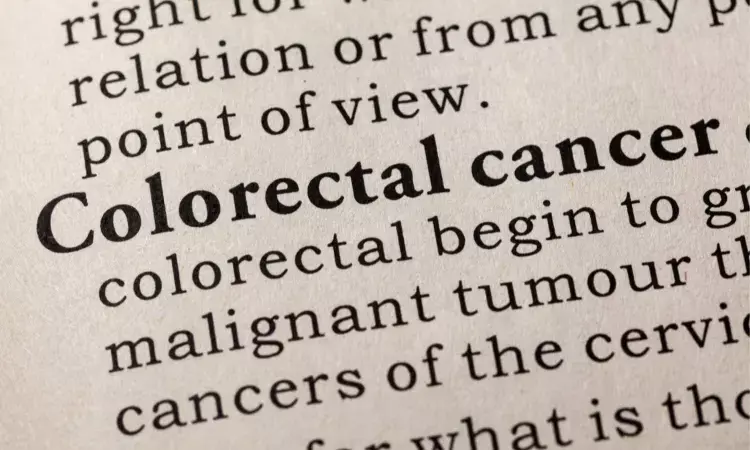- Home
- Medical news & Guidelines
- Anesthesiology
- Cardiology and CTVS
- Critical Care
- Dentistry
- Dermatology
- Diabetes and Endocrinology
- ENT
- Gastroenterology
- Medicine
- Nephrology
- Neurology
- Obstretics-Gynaecology
- Oncology
- Ophthalmology
- Orthopaedics
- Pediatrics-Neonatology
- Psychiatry
- Pulmonology
- Radiology
- Surgery
- Urology
- Laboratory Medicine
- Diet
- Nursing
- Paramedical
- Physiotherapy
- Health news
- Fact Check
- Bone Health Fact Check
- Brain Health Fact Check
- Cancer Related Fact Check
- Child Care Fact Check
- Dental and oral health fact check
- Diabetes and metabolic health fact check
- Diet and Nutrition Fact Check
- Eye and ENT Care Fact Check
- Fitness fact check
- Gut health fact check
- Heart health fact check
- Kidney health fact check
- Medical education fact check
- Men's health fact check
- Respiratory fact check
- Skin and hair care fact check
- Vaccine and Immunization fact check
- Women's health fact check
- AYUSH
- State News
- Andaman and Nicobar Islands
- Andhra Pradesh
- Arunachal Pradesh
- Assam
- Bihar
- Chandigarh
- Chattisgarh
- Dadra and Nagar Haveli
- Daman and Diu
- Delhi
- Goa
- Gujarat
- Haryana
- Himachal Pradesh
- Jammu & Kashmir
- Jharkhand
- Karnataka
- Kerala
- Ladakh
- Lakshadweep
- Madhya Pradesh
- Maharashtra
- Manipur
- Meghalaya
- Mizoram
- Nagaland
- Odisha
- Puducherry
- Punjab
- Rajasthan
- Sikkim
- Tamil Nadu
- Telangana
- Tripura
- Uttar Pradesh
- Uttrakhand
- West Bengal
- Medical Education
- Industry
Statins linked to lower risk of colorectal cancer in patients with ulcerative colitis

Cholesterol-lowering statins might protect patients with ulcerative colitis from developing and dying from colorectal cancer. Statin treatment was also associated with a lower risk of death regardless of cause in patients with ulcerative colitis or Crohn's disease. This is according to a study by researchers at Karolinska Institutet in Sweden published in eClinicalMedicine.
“Even though more studies are needed to confirm our results, our study suggests that statins can prevent colorectal cancer in patients with inflammatory bowel disease (IBD), which is a high-risk group for this kind of cancer,” says the study’s first author Jiangwei Sun, researcher at the Department of Medical Epidemiology and Biostatistics, Karolinska Institutet.
The observational study conducted by Dr Sun and his colleagues compared over 10,500 IBD patients from around the country, of whom half were statin users; the other half of the group, who were matched with the first, were not. After a follow-up period of, on average, 5.6 years, 70 of the statin group and 90 of the non-statin group had been diagnosed with colorectal cancer.
The effect increased over time
The protective effect was directly proportional to the length of time the patient had been on statins and could be demonstrated after two years’ treatment.
There were also fewer deaths from colorectal cancer in the statin group (20) than in the non-statin group (37) during the study period, and deaths regardless of cause (529 versus 719).
The study shows that some 200 IBD patients need to be treated with statins to avoid one case of colorectal cancer or death from the cancer within ten years of treatment onset. The protective effect was only statistically valid for patients with ulcerative colitis.
“We think this is because the study contained fewer patients with Crohn’s disease,” explains Dr Sun. “More and larger studies compiling data from patient populations in many countries will probably be needed to achieve statistical significance for Crohn’s disease.”
Significantly fewer deaths
To avoid death regardless of cause during the same ten-year period, the number of treated patients dropped to 20, on account of how statins also protect against more common conditions, such as cardiovascular disease. Statins were linked to fewer deaths in both ulcerative colitis and Crohn's disease patients.
The study was based on the ESPRESSO-cohort, which is run by its initiative-taker Jonas F Ludvigsson, paediatrician at Örebro University Hospital and professor at the Department of Medical Epidemiology and Biostatistics, Karolinska Institutet, and the study’s last author.
“In that we can combine tissue data from patients with colorectal cancer with data from Swedish health registries, we’re uniquely placed to study the long-term effects of drugs for IBD,” he says. “Our hope is that these studies will improve the care of IBD patients.”
The most solid evidence so far
According to the researchers, the new results provide the most solid evidence so far that statins could be an effective prophylactic for colorectal cancer among people with IBD. However, more knowledge must be gathered before the treatment can be recommended in general guidelines.
“More studies are needed to ascertain if there is a causal relationship, at what point of the pathological process statins should be administered, what a reasonable dose would be and how long treatment needs to last if it’s to be of benefit,” says Dr Sun.
Reference:
Jiangwei Sun, Jonas Halfvarson, David Bergman, Fahim Ebrahimi, Bjorn Roelstraete, Paul Lochhead, Statin use and risk of colorectal cancer in patients with inflammatory bowel disease, DOI:https://doi.org/10.1016/j.eclinm.2023.102182.
Dr Kamal Kant Kohli-MBBS, DTCD- a chest specialist with more than 30 years of practice and a flair for writing clinical articles, Dr Kamal Kant Kohli joined Medical Dialogues as a Chief Editor of Medical News. Besides writing articles, as an editor, he proofreads and verifies all the medical content published on Medical Dialogues including those coming from journals, studies,medical conferences,guidelines etc. Email: drkohli@medicaldialogues.in. Contact no. 011-43720751


